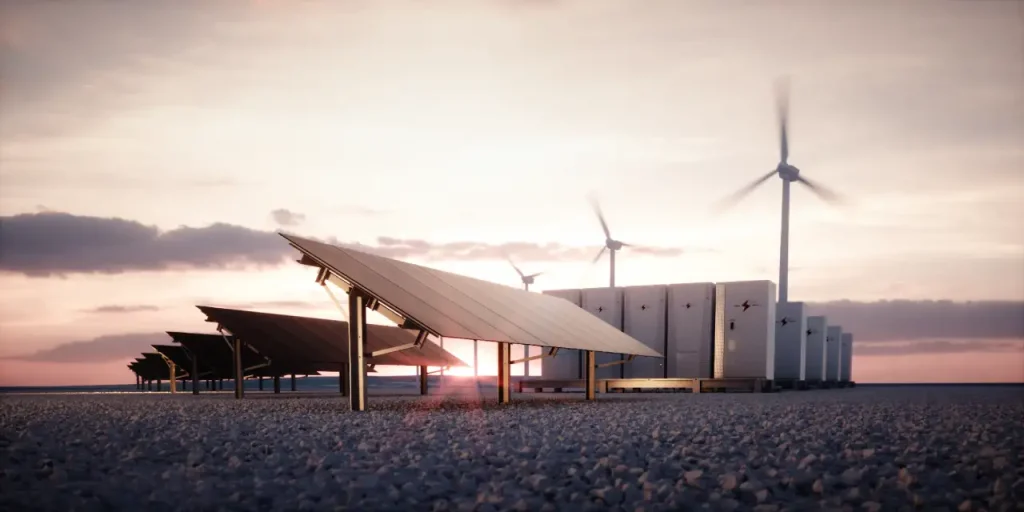
The shift toward renewable energy is one of the most significant global movements of our time, driven by the urgent need to combat climate change, reduce dependence on fossil fuels, and ensure energy security. In India, with its vast population and growing energy demands, renewable energy is emerging as a crucial solution. However, despite its potential, renewable energy is often misunderstood, hindered by myths that obscure its benefits.
In this article, Inkel, renewable energy experts in Kerala, India, will debunk common myths about renewable energy and highlight why it is key to India’s sustainable energy future.
A pervasive myth about renewable energy is that it cannot provide consistent power due to the variability of sources like solar and wind. While it’s true that sunlight and wind are weather-dependent, advancements in technology, such as energy storage systems and hybrid power setups, ensure a stable and reliable energy supply. With India investing in smart grids and efficient battery solutions, renewable energy can now meet both peak and off-peak demands.
Many people assume that adopting renewable energy is financially unviable for a developing nation like India. While the initial installation costs of solar panels or wind turbines can be higher than traditional fossil fuel plants, the long-term savings on fuel costs and maintenance are substantial. Moreover, falling prices of renewable technology, coupled with government subsidies, tax incentives, and loans, make it an economically viable choice for households, businesses, and industries.
India’s diverse climate, including monsoons and cloudy days, raises concerns about the efficacy of solar panels. However, solar technology has advanced to the point where panels can generate electricity even under low-light conditions by capturing diffuse sunlight. This means that even during India’s rainy seasons, solar systems can perform efficiently, making them suitable across all regions.
Some critics claim that renewable energy projects, such as wind farms, harm ecosystems and wildlife. While early implementations of wind energy did face such challenges, modern solutions emphasize sustainability. Projects are now designed with minimal environmental impact, following strict regulations on placement and design. Solar farms, too, have a low ecological footprint compared to the massive environmental toll of fossil fuels.
India’s rapidly growing industrial sector often raises questions about renewable energy’s ability to meet its vast energy needs. Contrary to this belief, renewable energy, when combined with advanced grid infrastructure and energy storage, is capable of powering industries. Many large-scale enterprises in India, including IT parks and manufacturing units, are successfully transitioning to renewable energy, ensuring energy security without compromising output.
Hydropower has traditionally been India’s most significant renewable energy source. However, focusing solely on hydropower overlooks the immense potential of solar, wind, and biomass energy. With over 300 sunny days annually and expansive coastal and inland areas suitable for wind power generation, India has a wealth of untapped renewable energy resources waiting to be utilized.
One of the greatest misconceptions about renewable energy is that it could displace traditional jobs in coal and other fossil fuel industries. On the contrary, renewable energy is a massive job creator. In India, the renewable energy sector is projected to generate millions of jobs in areas such as manufacturing, installation, maintenance, and research. These are opportunities that can upskill and employ a large portion of the population.
In the past, energy storage systems, particularly batteries, were criticized for their high costs and inefficiency. However, ongoing innovation in battery technology has led to affordable, high-capacity storage solutions that can store renewable energy for use during non-productive hours. India’s commitment to building large-scale energy storage projects further ensures that renewable energy systems are not only feasible but also efficient.
Another myth assumes that the adoption of renewable energy is too gradual to make a meaningful impact on climate change. In reality, every step toward increasing renewable energy use reduces greenhouse gas emissions. India, as a signatory to the Paris Agreement, has been making significant strides with ambitious renewable energy targets, such as achieving 500 GW of renewable capacity by 2030. This collective effort will have a transformative impact on global climate action.
Skeptics often question whether India has the infrastructure and expertise to support a large-scale transition to renewable energy. However, India has already become one of the world’s leaders in renewable energy deployment, with initiatives such as the National Solar Mission and large-scale wind energy projects. The development of smart grids, efficient energy storage systems, and international collaborations underscores India’s readiness for this transformation.
At Inkel, the renewable energy experts in Kerala, India, we believe that debunking these myths reveals the immense potential of renewable energy to transform India’s energy landscape. For individuals, businesses, and industries, adopting renewable energy is not only a responsible environmental choice but also a practical economic decision. With government policies supporting its growth and private enterprises driving innovation, renewable energy is set to become the backbone of India’s energy future.
To wrap it , renewable energy is no longer just an option—it’s a necessity for India’s sustainable development. By addressing misconceptions and fostering awareness, we can accelerate the adoption of cleaner, greener energy sources. Whether you are an individual looking to reduce your carbon footprint or a business aiming for energy independence, renewable energy offers a reliable and sustainable solution for a brighter tomorrow.

+91 484-2978101 (09:30 AM – 5:30 PM)
Designed by